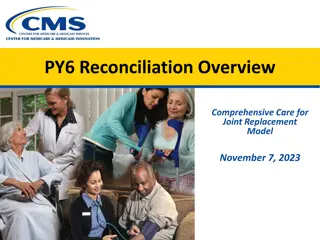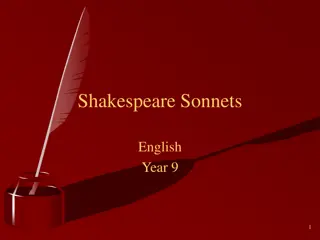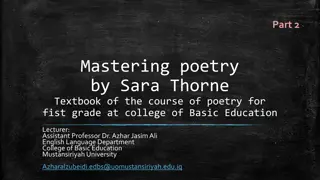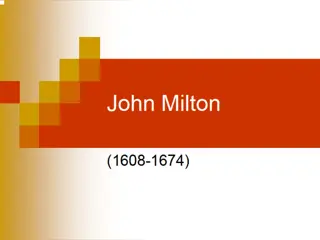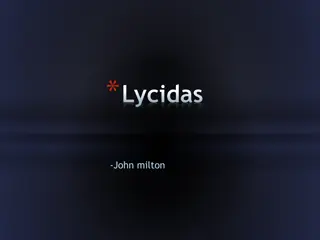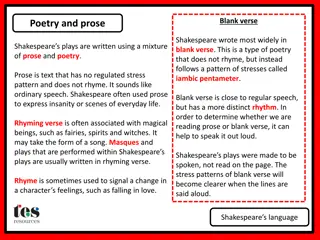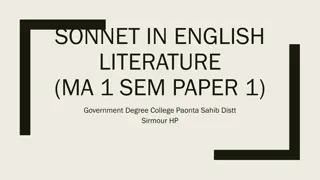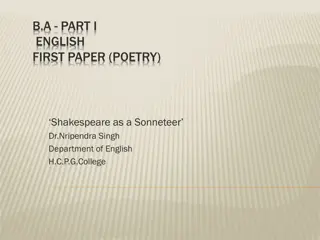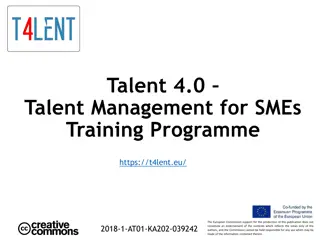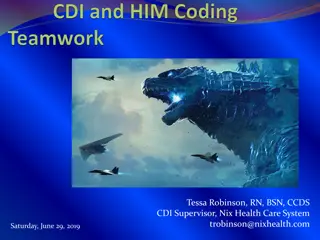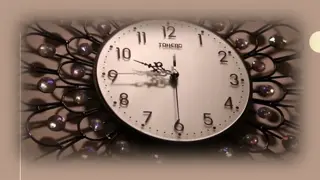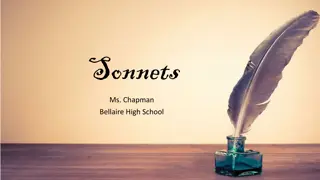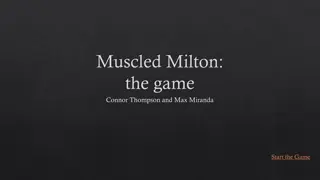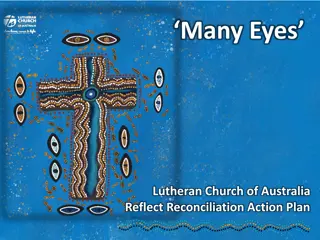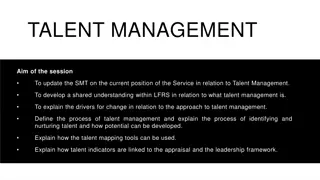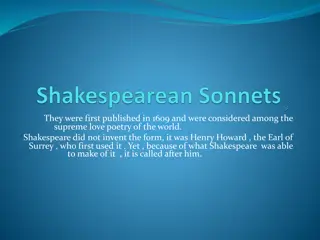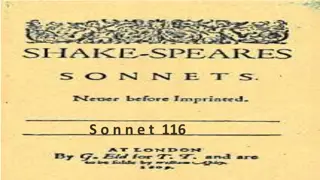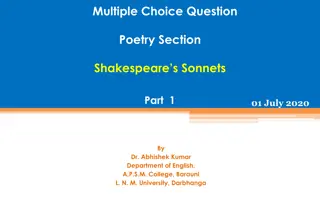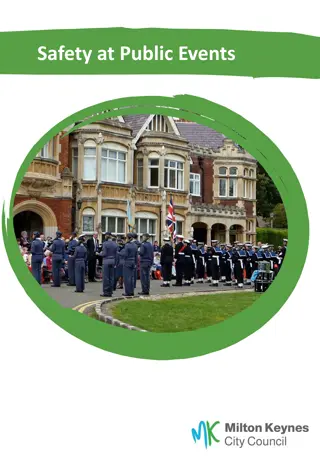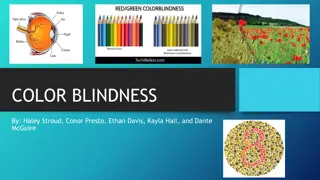John Milton's Sonnets: Reflections on Talent, Blindness, and Reconciliation with God
John Milton, the renowned English epic poet, explores themes of talent, blindness, and faith in his sonnets. Through his poetic expressions, he grapples with the challenges of his physical condition, the expectations of his talents from God, and ultimately finds reconciliation in serving God through acceptance and endurance. Milton's introspective sonnets provide insight into his spiritual journey and poetic struggles.
Download Presentation

Please find below an Image/Link to download the presentation.
The content on the website is provided AS IS for your information and personal use only. It may not be sold, licensed, or shared on other websites without obtaining consent from the author.If you encounter any issues during the download, it is possible that the publisher has removed the file from their server.
You are allowed to download the files provided on this website for personal or commercial use, subject to the condition that they are used lawfully. All files are the property of their respective owners.
The content on the website is provided AS IS for your information and personal use only. It may not be sold, licensed, or shared on other websites without obtaining consent from the author.
E N D
Presentation Transcript
John Milton was born in Bread Street, London on 9th December, 1608. He was the one and only epic poet in English. He was a strong supporter of the Puritan Government. Milton retired from active politics and concentrated on his writing.
Blindness (1673) the poet laments, because of his blindness. The Petrachan sonnet form is followed by Milton. The first eight lines is called the octave . The next six lines is called sestet. In Milton s sonnet, the octave contains his complaints against God and the sestet records his eventual reconciliation with God. In this sonnet On His
one talent which is death to hide Lodg'd with me useless . In this poem the poet asks how God can expect him use his poetic talent as a writer , when he was blind.he must not bury his talent, because on Christ s return to earth he wants to know how everyman has invested his talent. though my soul more bent To serve therewith my maker, and present My true account , test he returning chide Milton s writing an epic was not only an intellectual task, but also involving hard spiritual effort. He believed that a great poet was religious. The poet is afraid that he will be scolded by his Master namely, God for not using his gifts (Poetic talent) and writing immortal poems.
Doth God exact day labour, light denied? this passage to the Biblical parable of labourer. The labourers who have worked for a longer time grimble because they are not paid proportinately higher wages. In the same way Milton feel better thinking that though he has also to work hard. There is an implication that God is cruel and has deliberately made him blind. The word day labour is an allusion in
Poets Reconciliation with God Milton replies that , God doth not need, Either man s work or his own gifts. In the last six lines, the poet recollects that God not need men to work for him, Those who accept and endure hard ships patiently serve him . Those who accept and endure hard ships patiently serve him as well as those who rush about the world in his service.
Biblical Comparison of Blindness to Yoke: .. Who best Bear his mild yoke, they serve him best Yoke is the wooden pole placed across the neck of an ox pulling a cart. The carter Imposes on the animal only the difficulty that he can endure viewed in his light, the blindness inflicted on Milton is only a mild yoke. . His state Is kingly: thousands at his bidding speed. The poet uses the well-known practice of comparing God to a great king. This is allusion to the prophecy of Daniel in which Danial speaks of thousands of followers waiting of God.
They also serve who only stand and wait The poet uses another Biblical comparison of men to angels. The thousands of angels who meekly waited on God s bidding. They are not to be dismissed as idle. Finally, the Milton understood that God only serve to men ,but does not expect to be served by men.
Conclusion: believe that God does not expect to be served by men and that those who wait on God silent and patiently also serve Him (God) in their own small way. By the end of the poem he comes to


